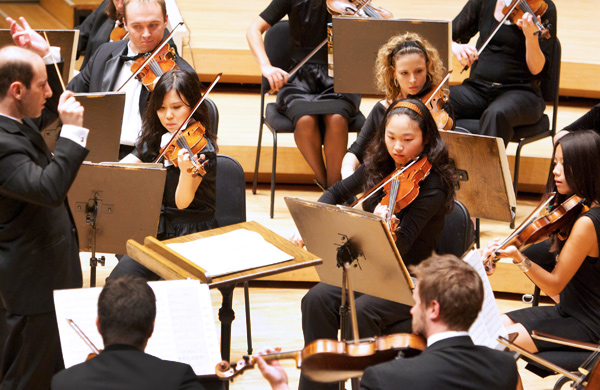GROUPON GUIDE TO CHICAGO
September Strings Lineup
BY: Reuben Westmaas |Aug 30, 2013
BY:
Deals in Chicago

Up to 86% Off Unlimited Indoor Amusement Park Play Packages
7631 North Caldwell Avenue, Niles • 13.8 mi
55% discount_off
$15.20 with_code NEWYEAR
Play and Spin - Niles

Timeless Journey Awaits: Admission Tickets to Chicago History Museum
1601 North Clark Street, Chicago • 4.4 mi
40% discount_off
$9.12 with_code NEWYEAR
Chicago History Museum
Deals in Chicago Other Deals in Chicago

Trending
AMC: Yellow Tickets & Snacks – Experience big-screen magic Anytime!
108 North State Street, Chicago • 2.6 mi
34% discount_off
AMC Theatres

Trending
Up to 40% Off Illinois' Largest Trampoline Park Sky High Sports
6424 West Howard Street, Niles • 13.8 mi
16% discount_off
$12.80 with_code NEWYEAR
Sky High Sports

Trending
Up to 43% Off on Handcraft Class at Lovely Intentions
1937 West North Avenue, Chicago • 4.4 mi
40% discount_off
$28.80 with_code NEWYEAR
Lovely Intentions
 Many classical music groups take the summer off, coming back in September when they don't have to coat their cellos in suntan lotion. This year’s return marks a particularly special occasion. Everyone from small ensembles to the Chicago Symphony Orchestra is putting together programs to celebrate Giuseppe Verdi's 200th birthday. But it’s not as if the classical scene holds the monopoly on stringed instruments. This September, all sorts of string performers hit the stage, including a violinist with a taste for Latin jazz and an old-fashioned mandolin picker.
Many classical music groups take the summer off, coming back in September when they don't have to coat their cellos in suntan lotion. This year’s return marks a particularly special occasion. Everyone from small ensembles to the Chicago Symphony Orchestra is putting together programs to celebrate Giuseppe Verdi's 200th birthday. But it’s not as if the classical scene holds the monopoly on stringed instruments. This September, all sorts of string performers hit the stage, including a violinist with a taste for Latin jazz and an old-fashioned mandolin picker.

